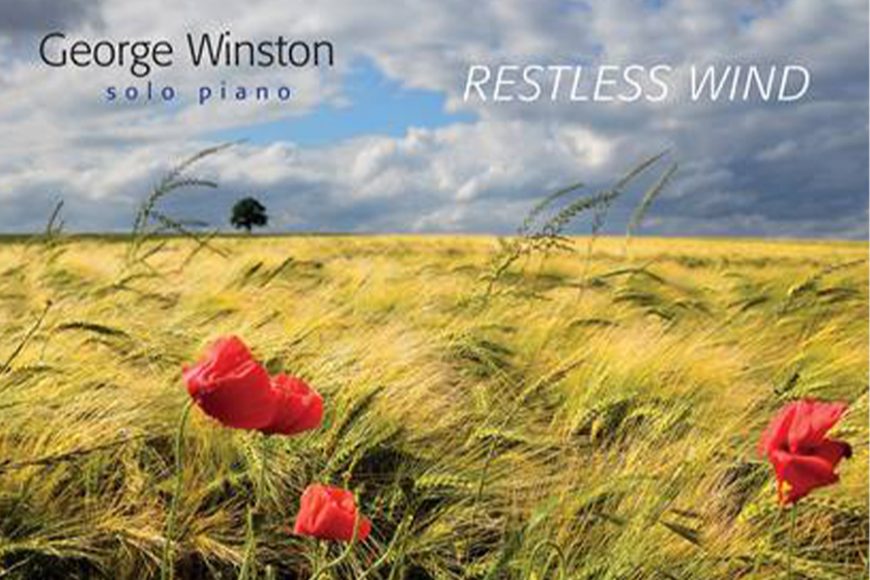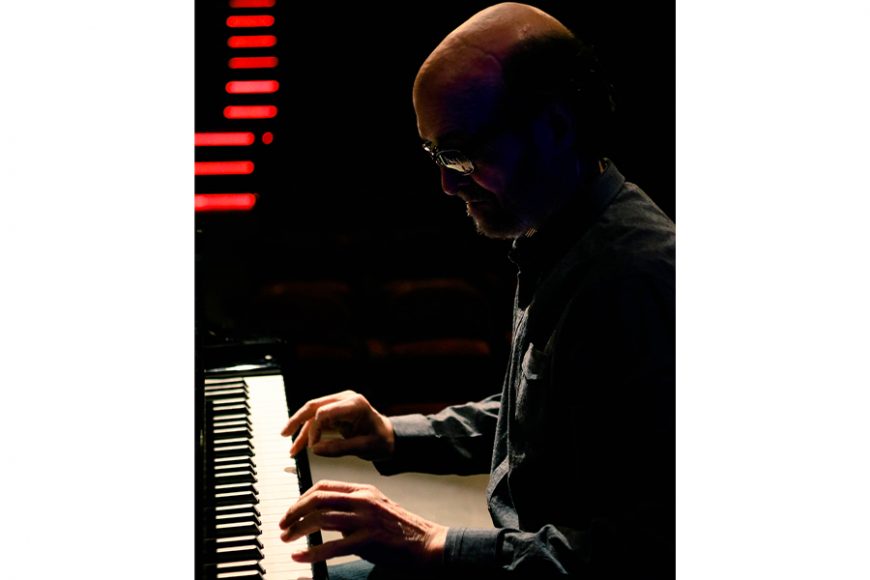There are probably more than a few record collections in existence since the early 1980s that have at least one George Winston album. His 1982 breakthrough album “December,” considered to be an essential holiday music recording, has earned him a massive following among piano music enthusiasts.
At the forefront of the solo melodic piano movement, Winston has covered all four seasons, as well as paid tribute to composer/pianist Vince Guaraldi and the music of The Doors, among others. On his remarkable new album “Restless Wind” (Dancing Cat/RCA), Winston takes an unexpectedly sociopolitical turn, wordlessly commenting on our current situation via songs such as Sam Cooke’s “A Change Is Gonna Come,” Mark Isham’s “The Times of Harvey Milk,” The Doors’ “The Unknown Soldier,” Buffalo Springfield’s “For What It’s Worth” and José López Alavez’s “Cancion Mixteca (Immigrant’s Lament).” I spoke with Winston about the new album and his creative journey shortly before the album was released in May:
Over the course of your long career, you have included cover songs and originals on your albums. When it comes to the originals, what can you tell me about your songwriting process?
“There really kind of isn’t any. Usually, when I’m at the piano, something starts happening. I write down the chords and play it a little bit. The next day, maybe it’s still there, maybe it isn’t. Maybe it evaporates away. Or maybe I’ll use part of it later as an introduction to something. Something emerges from the subconscious every so often. It either stays around or it doesn’t. If it has a picture (associated) with it, a season or a topography or something like that, then it often stays around.”
So, this picture, as you called it, becomes part of the inspiration?
“Yes. It could be when I’m feeling inspired or not. It can be that I’m just practicing something else and I go, ‘Oh, that seems pretty good.’”
Your association with Windham Hill Records beginning in the early 1980s meant that you were tagged as a New Age musician. What did that kind of label mean to you and in what ways did that help or hinder your artistry?
“I have nothing to do with that sensibility. I always called it ‘melodic piano.’ That (New Age tag) was just a mistake. I don’t really know anything about whatever that is.”
What does it mean to you that your “December” album has become a winter holiday classic?
“I leave it up to each listener. Everybody’s got their own taste in music. There’s no right or wrong. We’ve all got our tastes and the albums that we buy. It gives me a chance to play more live. I don’t really keep track of sales. It’s really all just about the playing — what I am working on in the studio, what the next show (is that) I am going to be playing some place.”
There is a distinctly political tone to your new album “Restless Wind,” heard in your interpretations of songs such as “A Change Is Gonna Come,” “For What It’s Worth,” “The Unknown Soldier” and “Cancion Mixteca,” to mention a few. What would you say was the impetus for putting together this selection of songs?
“It was much more about what those songs as instrumentals did when they work together. A lot of up-tempo stuff. They’re all just great compositions.”
Do you consider or have you considered yourself to be an activist in any way?
“We work with local food banks at every show. We always invite a food bank to the show and ask people to bring canned food if they can. I concentrate in that area.”
Speaking of The Doors, you paid tribute to the band on your 2002 album “Night Divides the Day.” Have you had the chance to meet any of the remaining members of The Doors over the years?
“I knew Ray Manzarek pretty well. Pretty recently I met Robby Krieger. He wanted me to check out his studio in Los Angeles when I was there. It was great to meet both of them.”
I was struck by your inclusion of Mark Isham’s “The Times of Harvey Milk” from the documentary of the same name. Did your recording of the song have anything to do with the upcoming 50th anniversary of the Stonewall riots?
“No. I’m certainly for freedom and equal opportunity for everyone whoever they are and however they live. It’s just a great ballad. I’ve known that song since seeing the documentary in 1984. It just worked out.”
Speaking of movies, the Oscar-winning movie “Green Book” introduced a wide audience to the music of Don Shirley. Was he someone with whom you were familiar and, if so, what did you think of his work?
“Oh, yes, I loved his work. That’s a great movie. Amazing. (He was) a great pianist and interpreter.”
Have you ever covered or thought about covering any Shirley compositions?
“I’ve certainly checked things out over the years. He was a great composer, too. Nothing for me, personally, to play at this point. But you never know.”
Would you please say a few words about your own journeys, professionally and personally, that brought you here today?
“I’ve always been most inspired by the seasons. Growing up in eastern Montana, the seasons were so distinct from each other and pretty extreme. I started playing (music) when I heard The Doors in early 1967. I was a fan of instrumentals and organists. I only got the album because the band had an organist in it. They weren’t known that much outside of Los Angeles. I heard that first album and I said, ‘I’ve got to play in a band someday.’ Then I heard Fats Waller’s recordings and in 1971 I switched to solo piano. I came up with the folk piano style, the melodic style and then the complementary style. I wanted something complementary to the up-tempo, Fats Waller stride piano stuff. Songs occasionally started happening in the process we talked about earlier. If a song lasted, it always had a picture of a season or a place. Seasons and places are two sides of the same coin. A place has to have a season and a season’s got to be in a place or a topography. The seasons are the basis for me. Whether it’s a piece I put together or an interpretation.”
George Winston performs on Dec. 3 and 4 at Loreto Theater at The Sheen Center for Thought & Culture in Manhattan. For more, visit sheencenter.org. He’ll also perform Dec. 6 at Landmark on Main Street in Port Washington. For more, visit landmarkonmainstreet.org.





